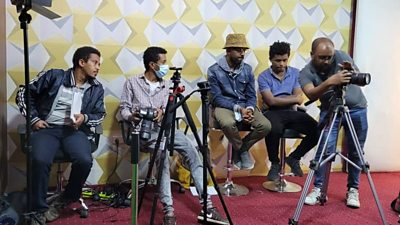Downloads
Research summary
Published: July 2022
The PRIMED (Protecting Independent Media for Effective Development) consortium, led by ���˿��� Media Action, works to strengthen the flow of public interest media content to audiences in Sierra Leone, Ethiopia and Bangladesh. Working with local media partners, we aim to improve audience understanding and support the provision of more trustworthy, engaging, inclusive and relevant information. Ongoing research helps media partners build a picture of audience profiles and needs, equipping them with insight to improve output.
The PRIMED consortium provides training and support to build media partners’ resilience to political and economic pressures. This includes efforts to develop partners' production capabilities and editorial skills to impart accurate, reliable public interest content.
The project also provides assistance to sectoral partners, supporting locally-led coalitions and advocacy in the defence of media freedom and the pursuit of an improved enabling environment.
Working across three very different contexts, the project has learning as a major component, aiming to generate evidence about what works and what doesn’t in strengthening media viability and sustainability.
Within all of these goals, research and insight helps to evaluate the success of project activities, generate evidence of change, provide learnings that help to fine-tune support, and crucially, helps to improve understanding of audience needs and perceptions to serve them better. This last focus area enables media partners to work towards improvements in their content development and business strategies.
The audience research
Exploratory and baseline research was carried out in 2021, with audience panels set up to pave the way for further insight to be generated, and where possible, to track perceptions over time.
In all three countries, these panels (around 40-70 respondents per partner) consist of men and women from a cross-section of the populations or communities reached by media partners. These were recruited to ensure the inclusion of people of different demographic profiles.
In addition to controlling for factors such as age and locality, the panels were structured to include a mix of more loyal audiences, less committed audiences and potential audiences, to ensure a range of opinions are sought.
To best elicit the depth and breadth of views, the baseline research took a hybrid quantitative-qualitative approach, allowing some benchmarking from structured questions, and deeper exploration using open-ended questioning, complemented by a series of full qualitative discussions.
Key findings
Sierra Leone
The research found that in many parts of Sierra Leone, particularly outside Freetown, media options are relatively scarce. The accessibility and affordability of radio attracts most audiences to this platform, although it is frequently affected by power outages and technical issues, and in many rural areas there are relatively few stations available. Although gradually improving, this still leaves audiences heavily reliant on those media that exist in their area. The performance of those institutions in serving their communities is vital, yet our research found unmet audience needs and mixed perceptions of individual outlets:
- There is a growing recognition of the role of media in holding government to account, but most outlets are seen to shy away from covering some topics, particularly on political subjects where they may fear a backlash.
- Audiences note that guests and contributors are often government officials or other ‘powerful men’ and this is at the expense of ordinary people being included.
- Listeners would like to hear more female voices, as well as more coverage of issues affecting girls.
- Opportunities for audience interaction through call-ins is popular, but few outlets are seen to do enough of this.
- Political bias is observed, together with an absence of any programming that would hold politicians to election promises made.
What we don’t have right now is a programme that will follow up on the politicians to make sure that they fulfil their promises to us, because they come here all the time and talk a lot [to convince] us to vote for them and after that, they don’t do what they have promised to our communities.”
Although media partners show strong potential compared with many competing outlets, the findings showed room for improvement in several of these areas.
Ethiopia
The media landscape in Ethiopia is seen to have undergone some expansion in terms of choice and improvement in quality in recent years. However, greater media plurality is marred by increasingly deep divides along ethnic lines; identity politics are becoming the norm. While some audiences are drawn to narratives that seemingly speak to certain identities, others are left alienated and disillusioned.
Although partners perform better, a weakness that typifies a number of Ethiopian media, including some partner stations, stems from a lack of fresh innovative news, opting instead to make use of other media’s content. Audiences would also like to see media outlets doing more to include the voices of women, youth and those in other regions, including rural areas of Ethiopia. There is a sense that news is aimed at the affluent urban elite in Addis Ababa, and people want more explanation and context to help make sense of events around them.
I suppose they reflect my view but only to a certain extent. I say this because I am from the countryside so I have a desire to see programmes about my roots. But Asham has no programmes focusing on the countryside and agriculture. I suppose the views and concerns of rural people have not been sufficiently reflected on Asham TV.”
Bangladesh
Bangladesh’s media users are enjoying increased choice in recent years, particularly as online media grows. However, perceptions of the media in general paint a more negative picture of political bias, misinformation and turning a blind eye to corruption among the powerful elite.
“If any powerful people get reported, they might just call a media outlet and say “hello”. That would be enough to remove that story from the media.”
Audiences recognise that not all media are made equal, and our media partners are generally well-regarded for efforts to serve communities. However, women, and those living in rural areas or marginalised communities outside Dhaka, don’t always connect with the issues discussed and often feel their needs are not being adequately met.
Despite this, there is a healthy measure of trust in partner media organisations; although bound to some degree of self-censorship for political reasons, it is significantly less than most other outlets.
Implications for media partners
These findings are used by our media partners, many of whom have never had the benefit of hearing from their audiences. Understanding audience needs and where improvements could be made is therefore crucial.
Our media partners include a varied mix of media types, from national broadcasters to smaller community radio stations and regional newspapers. As such, their need for further information is also wide-ranging. Ongoing research helps to answer more specific questions, such as how to attract younger audiences or grow their online offering.
The PRIMED project continues to provide audience insight as part of the wider package of support to these media outlets. It also aims to build the capacity of partners to conduct their own research and gather their own data in future, with the ambition of leaving these media houses better able to engage with their audiences and identify opportunities for growth.
Find out more about the PRIMED project here.
Our research library
-
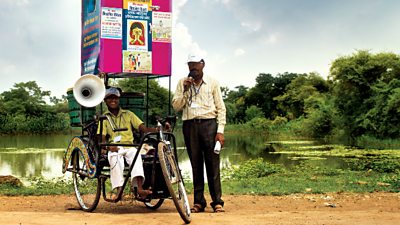
Long reads
Read our comprehensive research reports of the evidence behind our work. All of our publications are freely available to download. -
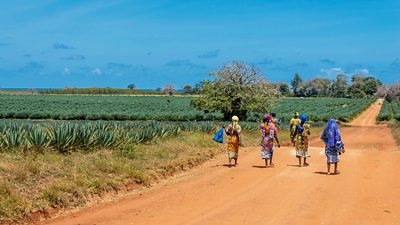
Short reads
At a glance, explore key findings and evidence behind our work. All of our publications are freely available to download. -
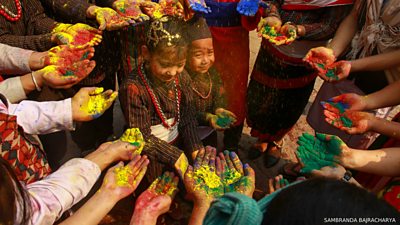
By country
Explore our findings and analysis country by country. All of our publications are freely available to download. -
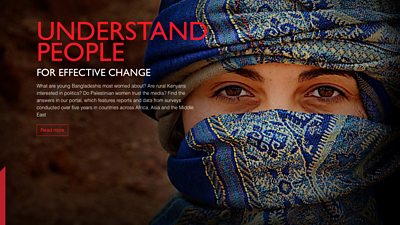 What are young Bangladeshi's most worried about? Are rural Kenyans interested in politics? Do Palestinian women trust the media? Find the answers in our data portal (last updated 2020).
What are young Bangladeshi's most worried about? Are rural Kenyans interested in politics? Do Palestinian women trust the media? Find the answers in our data portal (last updated 2020).
